Please login or click here to join.
Forgot Password? Click Here to reset pasword
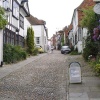 | 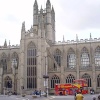 | 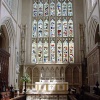 | 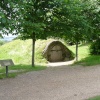 | 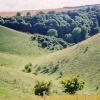 | 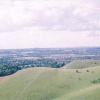 |
| Sally Birch Posts: 292 Joined: 13th Feb 2009 Location: UK | quotePosted at 12:53 on 1st February 2010 Recently both listening to other photographers and reading threads on this and other websites I have picked up on the seemingly never-ending argument that digitally adjusted images are not art. Comments such as “it should be exactly what my eyes saw” and “it’s clearly cheating” and other similar comments suggesting that any kind of image adjustment is not acceptable in some quarters. In my youth I studies art, and was taught perspective, anatomy and colour just to mention a few of the subjects in the curriculum. I also learned how to choose and use materials to get the best effect. When drawing or painting still-life things were fairly easy as we painted what had been set up but when out in the field it was a different matter, sometimes the view was marred by unsightly objects such as telegraph poles, fences and other unsightly and distracting items and so we were taught to ignore them omitting them from our painting to achieve a better result. I remember one of my instructors pointing out that in all probability many Old Masters had been improved in this way. Recently I attended a lecture by a landscape photographer who posed the point that when looking at a scene the eye adjusts to tune out minor eyesores but the camera cannot do this so unless it is possible to alter the viewpoint we either have to do a bit of digital manipulation, accept the image warts an all or not bother to take it in the in the first place. Not much of a decision to be made in my opinion. Another point made at this lecture; as that the sensor in a digital camera may not always be able to record the wide spectrum of information in some images hence burned out skies and black areas of shadow. So clearly there is case for some images, even though they are straight out of the camera, definitely not being what the eye saw. What should we do, use an ND grad filter or a bit of digital adjustment? Does one method make the image art and the other not? I have come to the conclusion that whether the image is straight out of the camera; just tweaked a little or manipulated into something entirely different from the original it is most certainly ART. What do you think? |
| Paul Hilton Posts: 2605 Joined: 21st Nov 2004 Location: UK | quotePosted at 13:20 on 1st February 2010 I'd have to agree that camera sensors don't have the dynamic range of your eyes but there are various ways of helping to see what your eyes saw. High contrast situations is where you're likely to come across this and your grey graduate filter example is one way of reducing the contrast as well as several other in-camera options or in post processing, particularly if you shot the photo in RAW. Using the camera's Histogram should give you an indication of how the lighting levels are between black through white. Church interiors are another example where you might want to see both the interior and the stained glass windows where I normally use fill flash to reduce the contrast between the two. Here's a typical example of that--- http://www.picturesofengland.com/England/Oxfordshire/Dorchester-on-Thames/pictures/1093696 Edited by: Paul Hilton at:1st February 2010 13:59 |
lancashirelove Posts: 1986 Joined: 18th Feb 2009 Location: UK | quotePosted at 13:20 on 1st February 2010 art, like beauty, is in the eye of the beholder. in my RAF days as a trained photographer, the camera recorded an image. that was a photograph, and as such, the camera didnt lie. If I needed to change that photograph by technical or scientific means it then became an image. Today due to computor imaging and advanced technology an 'artist' can present an image in anyway they wish, the presenter then becomes an artist and his/her work, art. |
| Paul Hilton Posts: 2605 Joined: 21st Nov 2004 Location: UK | quotePosted at 15:25 on 1st February 2010 Then using fash with landscape photos to see things your eye could see but might still be too dark from the camera's point of seeing things. An example here at dawn at Avebury with a hint of flash to lighten the stones a bit to see the detail in them that might be lost otherwise until the sun finally comes over the horizon loosing the dawn effect in doing so though which I was trying to keep in the photo. http://www.picturesofengland.com/England/Wiltshire/Avebury/pictures/1093638 |
| cathyml Posts: 23275 Joined: 25th Jan 2010 Location: South Africa | quotePosted at 17:04 on 1st February 2010 Does anyone lift the camera and click at just anything they see? Or does a particular view, scene, image beg to be photographed? I doubt there are very many photographers who have not considered the angles, the light and composition and viewpoints to create the best picture that they can - so in my view there is no doubt they have created a piece of art. |
| Peter Evans Posts: 3863 Joined: 20th Aug 2006 Location: UK | quotePosted at 22:02 on 1st February 2010 Good question Sally. I also studied art when I was much younger but realized that I am more like a camera than an artist. If I draw or paint the subject in front of me alls well,but if I wait till I get home,its gone for good. So I took to photographing the subject and painting from that. So my photos are a record of what was in front of me at the time. They are photos and not art. I do tweek the contrast and colour a bit to bring out the shadow detail and sometimes remove a bit of rubbish or tree branches and telegraph poles if they get in the way. But I do not consider this to be art. I alter as little as possible so that the image is as near to what I saw as it can be. I use grey grads and polariser filters to help out with colour and contrast as much as possible,but being limited in what I can carry now,I usualy have to do the fixing on the computer. But as far as I am concerned, it is not art ,but a recording of the ecene that was in front of me as near as I can make it. |
| Krissy Posts: 15430 Joined: 8th Jul 2008 Location: USA | quotePosted at 00:07 on 2nd February 2010 I think it is art. I've been taking photos on a regular basis since November and I love it. If I am out and about I will see something that makes me stop and say "oh it's beautiful" the same way I would look at a painting and say the same thing. I do edit my photos but I think that's where the "art" comes from. Just like an artist uses his brush to make a broader stroke or his paints to make it brighter...I edit to make the colors stand out or soften the image. There is a lot you can do to alter a photo and it can be a lot of fun and also a way of expressing yourself. |
| Ruth Gregory Posts: 8072 Joined: 25th Jul 2007 Location: USA | quotePosted at 05:17 on 2nd February 2010 I agree with you, Sally and Krissy, especially the point you made about the brush, Krissy. And when painting, you might not like the color of the blossoms on a tree, so you change them, or make the leaves a bit darker or lighter. A tool is a tool is a tool and a camera in the hands of a photographer is like the brush in the hand of the painter. Mind you, some photographers are technically skilled enough to capture the image as they see it and make the camera do the work, eliminating the need for any post photo manipulation. But photo software offers the tool for mixing and experimenting, very often with astonishingly beautiful results. If you're just taking snaps to document a place, perhaps it's not art, but if you're taking the time to be creative with composition, settings, light and shadows, color, etc. you're definitely practicing an art, IMHO.
|
| Stephanie Jackson Posts: 3911 Joined: 13th Apr 2008 Location: UK | quotePosted at 06:57 on 2nd February 2010 I do believe photography is art - very often alot of people will say what setting they used etc etc and my brain shuts down immediately as I hate all the technical gargon!!! There are some people who really believe that buying a really expensive camera and knowing all the technical stufff makes them good photographers - it doesn't at all, if they haven't got a good eye for a photo they are wasting their money! The beauty of this site is there is no camera snobbery and I am often amazed what beautiful results some people obtain from the cheapest of cameras. As for the altering of images I am a little torn. If the image is good in the first place and is just tweeked then it can make for a great picture. It is when people take a bad shot then try to improve it with photoshop I can't see the point. Also I don't believe in taking out a fence or a tree if it was there. As for me I haven't got photoshop - I do any altering needed on the camera itself. I greatly admire some of the altered shots. Some people however will overdo the colour altering - and after all there is no need to do that - mother nature gives brilliant colours for us to capture in the first place! As with everything in life balance is so important. I think Pictures of England should depict realistic images if possible because it is used by our overseas visitors for a true view of Britain. Edited by: Stephanie Jackson at:2nd February 2010 07:01 |
lancashirelove Posts: 1986 Joined: 18th Feb 2009 Location: UK | quotePosted at 10:37 on 2nd February 2010 On 1st February 2010 22:02, Peter Evans wrote:
Hi Peter, if you manipulate your subject you are the artist. You mention using filters etc or just repositioning yourself or the subect makes you an artist because you are using your skills (trained or natural), to present the subject as you want yourself or others to see it. As you describe, you use the camera to record and take a photograph but if you use your skills to display the finished result, you become an artist and your display becomes a form of art. |